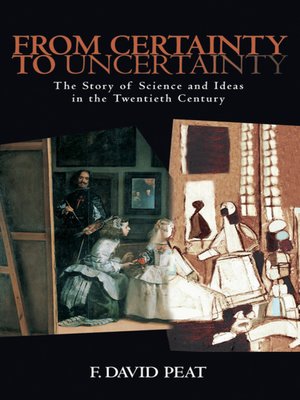From Certainty to Uncertainty
ebook ∣ The Story of Science and Ideas in the Twentieth Century
By F. David Peat

Sign up to save your library
With an OverDrive account, you can save your favorite libraries for at-a-glance information about availability. Find out more about OverDrive accounts.
Find this title in Libby, the library reading app by OverDrive.



Search for a digital library with this title
Title found at these libraries:
| Loading... |
<p>Early theorists believed that in science lay the promise of certainty. Built on a foundation of fact and constructed with objective and trustworthy tools, science produced knowledge. But science has also shown us that this knowledge will always be fundamentally incomplete and that a true understanding of the world is ultimately beyond our grasp.</p>
<p>In this thoughtful and compelling book, physicist F. David Peat examines the basic philosophic difference between the certainty that characterized the thinking of humankind through the nineteenth century and contrasts it with the startling fall of certainty in the twentieth. The nineteenth century was marked by a boundless optimism and confidence in the power of progress and technology. Science and philosophy were on firm ground. Newtonian physics showed that the universe was a gigantic clockwork mechanism that functioned according to rigid laws?that its course could be predicted with total confidence far into the future. Indeed, in 1900, the President of the Royal Society in Britain went so far as to proclaim that everything of importance had already been discovered by science.</p>
<p>But it was not long before the seeds of a scientific revolution began to take root. Quantum Theory and the General Theory of Relativity exploded the clockwork universe, proving beyond a shadow of a doubt that our knowledge was, at best, incomplete?and would probably remain that way forever. There were places in the universe, such as black holes, from which no information at all could ever be obtained. Chaos Theory also demonstrated our inherent limits to knowing, predicting, and controlling the world around us and showed the way that chaos can often be found at the heart of natural and social systems.</p>
<p>Although we may not always recognize it, this new world view has had a profound effect not only on science, but on art, literature, philosophy, and societal relations. The twenty-first century now begins with a humble acceptance of uncertainty.</p>
<p><i>From Certainty to Uncertainty</i> traces the rise and fall of the deterministic universe and shows the evolving influences that such disparate disciplines now have on one another. Drawing on the lessons we can learn from history, Peat also speculates on how we will manage our lives into the future.</p>






